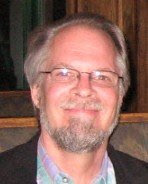The issue of health care is really heating up in our society. It appears to be the make or break test of the new administration. It's a huge political struggle for power, but of course it is not primarily about politics for 47 million people with no health insurance. It is about how to pay the bills.
In the past few weeks, the stress level has clearly increased to a boiling point around this hot issue. People are yelling at each other, spreading false information, and intentionally trying to create chaos at public meetings. One of the tragic dimensions of our democracy is that such negative tactics often work.
I don't want to reduce this national discussion to a single issue, because there are multiple concerns in the health care debate—concerns about freedom of choice, finances, private versus public plans, and universal coverage. These issues all merit further discussion. But I want to invite you to be aware of how the element of religion provides another dimension of the debate, one that is often in the background, unspoken.
One of the two religious traditions that form the historical background of the religious community I serve is called Universalism. Universalism is a particular branch of Protestantism that has traditionally taught that God will eventually save everyone; no one will be condemned to eternal punishment. There are similarities between this religious argument and the current argument that everyone should have health care. The underlying sentiment is that everyone has value and is worthy of being cared for in a loving way. No one should be left out of the circle of care.
The Universalists used to call the people on the other side of the theological argument Partialists, because according to the traditional doctrine, only a part of humanity would be saved. I would suggest that we, as a society, are historically Partialists; we are unconsciously comfortable with the idea that only part of humanity will be cared for and the other part will be left out.
One dimension of what is going on behind the scenes in this intense struggle over health care is a revival of the old argument between Universalists and Partialists. In this new incarnation of an old conflict, the Universalist argument is now being recast as socialism, which is a kind of heresy in America, much like Universalism was a heresy within Christianity.
This religious undercurrent in the health care debate is one of the reasons that the argument is so intense and emotional. It is not just health care that is at stake, but for some folks, it is the whole meaning of life as they understand it. This religious underpinning of the arguments is not the whole story, of course, but it is part of the story, and it helps to explain the extraordinary level of upset in the air.
As events unfold, I invite you to reflect on how religious beliefs have a subtle effect on social issues. This is a time of transformation for America, a time when we are reevaluating our understanding of our lives in community. Both sides see this reality clearly, hence the highly charged atmosphere. Let us hope that we, as a people, can find a way to care for each other without losing our civility and decency in the process.
Let me know your take on this difficult time as well.
Showing posts with label Partialism. Show all posts
Showing posts with label Partialism. Show all posts
Monday, August 17, 2009
Subscribe to:
Posts (Atom)



